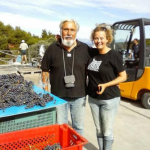Two meetings to decide the future of Croatia’s largest privately-owned company.
A very important meeting for the future of Agrokor took place on Friday, not because any crucial decisions were made, but because the goal of the meeting was to get important information upon which decisions in the weeks to come will be made, reports Jutarnji List on March 18, 2017.
The main participants of the meeting were the largest investors: Russian banks Sberbank and VTB. Key information allegedly presented at the meeting were prepared by Deloitte, and these were the initial results of complex financial forensics about the true state of Agrokor’s business. Until yesterday, the largest investors were still waiting for scrutinized information about Agrokor’s balance, EBITDA, its companies, debts and future financial obligations.
For example, for investors seeking solutions it is essential to know whether the situation is manageable and what can be done during the forthcoming restructuring. Minority shareholders should also get a confirmation whether Agrokor, with the fresh money that they provided, had paid 17.5 million euros in overdue taxes. The investors were the ones who provided the latest financial injection in the amount of 100 million euros, so that Agrokor can pay its obligations to the state and provide funding to suppliers.
Creditors and Agrokor should continue talks on further 200 million euros which should provide a temporary stabilization of the company. At the same time, the discussions will cover the issue of restructuring of the company which should mean a significant reduction or complete elimination of the Todorić family from ownership and management. It is possible that at yesterday’s meeting something specific was agreed, given a robust growth of two bonds by as much as 17 and 10 percent, which indicates a sudden optimism that could be linked to possible existence of a sustainable plan.
The next important step in addressing the dramatic situation in Agrokor will reportedly be a meeting of creditors which should happen within the next week. If key creditors reach an agreement with Ivica Todorić, the current majority owner, it is possible that discussions will include a more detailed analysis of the potential restructuring. In addition to the usual cuts concerning wages and the number of employees, the subject of the meeting could be a possible deconstruction of the whole system.
The good news for investors is that key parts of Agrokor’s assets outside Croatia are not in major problems. Mercator carries around 800 million euros of debt, but it can withstand it and is essentially financially independent thanks to its 2.5 billion euros of revenue in Slovenia and Serbia. Frikom and Dijamant in Serbia are also in not too much debt (about 100 million euros), Kiseljak in Bosnia and Herzegovina is doing fine…
In short, business operations of Agrokor in the region (Slovenia, Serbia, Bosnia and Herzegovina) are fine and investors will focus on a problem that is primarily concentrated on Croatia.









